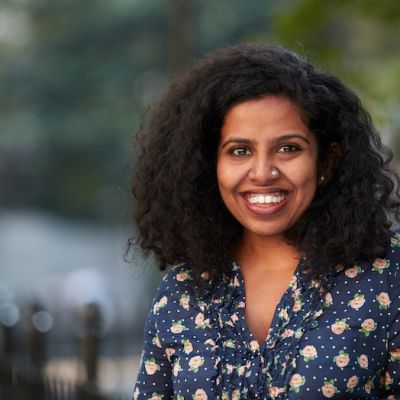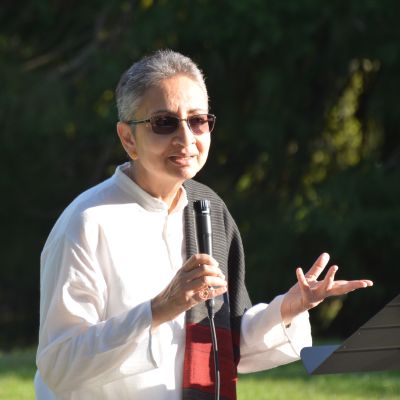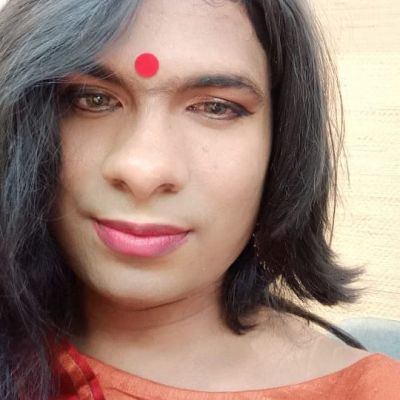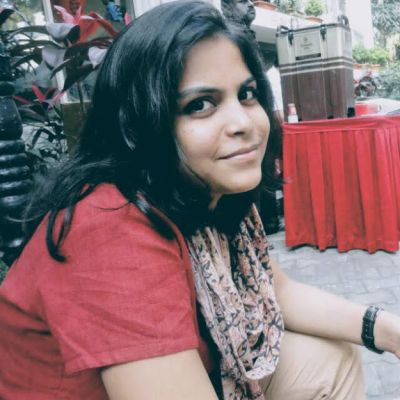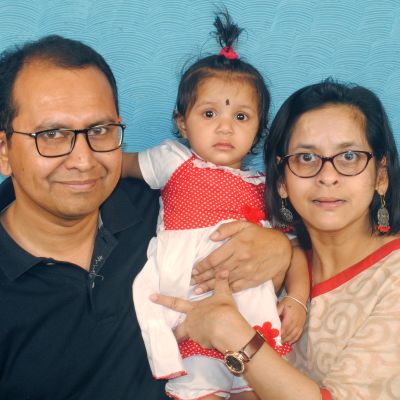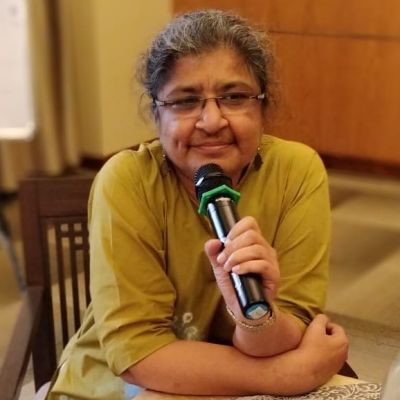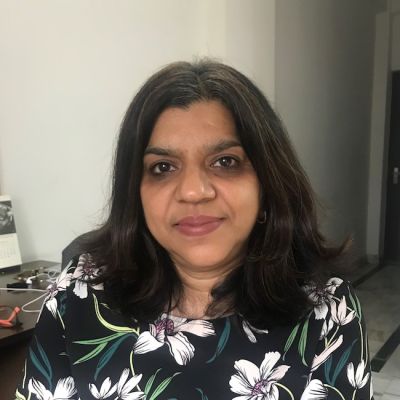Shikha Aleya
Shilpa believes loitering, just being, just hanging out in public places, is about ‘claiming the city with your body’. One of the co-authors of the book, ‘Why Loiter: Women and Risk on Mumbai’s Streets’ published in 2011, Shilpa has authored several essays and journals on issues of feminist parenting, gender and the politics of space, the right to take risks and related thoughts and concepts.
Jasmine George is a TEDx speaker, lawyer, and a sexual and reproductive health advocate from India. She is the founder of Hidden Pockets and currently curates conversations around sexuality and other fields. She is passionate about using alternative means in law and technology to explore sexuality
Reflecting on the theme of Spirituality and Sexuality for this issue of In Plainspeak, in an interview with Shikha Aleya, Lata says,“What might a spiritual approach contribute? It can lead you to understand that there is a core aspect of you that exists prior to and alongside the particulars that shape your identity – class, gender, sexuality, religion, able-bodiedness, etc…”
Shikha Aleya interviews Daniel Mendonca who identifies as an intersex person and is a gender rights activist who has engaged with diverse groups of people in India and other countries, to expand awareness, build empathy and foster an environment that is accepting of diversity.
कुमाम डेविडसन एक स्वतंत्र पत्रकार, ऐक्टिविस्ट और शिक्षक हैं। वे पूर्वोत्तर भारत में क्विअर विषयों पर डिजिटल और प्रिंट सामग्री…
Adsa Fatima is a feminist, trainer and resource person working with Sama Resource Group for Women and Health. In this interview, she shares her insights on issues of privacy, safety and inclusion in the context of reproductive health, sexuality and rights, and the family and social environment that influence individual choices and decisions
केवल एक तरह से जीवन जीने, या अपनी यौनिकता को अनुभव करने से अधिक और भी बहुत कुछ होता है। इसके लिए ज़रूरी है कि पहले तो हम अपने मन में इसे स्वीकार करें और इसके लिए तैयार हों।
People make assumptions about both mobility and sexuality and quite often reduce them to a few simple, unidimensional concepts. Sexuality is reduced to sex, marriage and the gender binary. Mobility is reduced to ableist concepts of body and capacity, and access to, or the possession of, a vehicle to get from point A to B.
Jeeja Ghosh is a disability rights researcher and activist, feminist, parent, writer, scholar and trainer. Her lived experience of disability, and of standing up against discrimination and injustice, is at the core of her work and insights. Shikha Aleya interviews Jeeja about mobility across divides other than the physical.
In the course of this interview with Shikha Aleya, Chayanika Shah points out, “While decisions around gender and sexuality are very private and apparently made by each person for themselves, the material connections of community and family make this choice very contextual, and contingent on the whole social structure.”
Here, in Part 2, each interviewee addresses aspects of sexuality and diversity from their own particular space of personal knowledge, as well as work, advocacy, art and activism across diverse fields.
For the two-part interview section of this month’s In Plainspeak, Shikha Aleya spoke to a few individuals who continue to push the boundaries of their work, art, and social norms, and expand the understanding of diversity and sexuality.
‘आप मटरगश्ती (लॉयटर) क्यों करना चाहेंगे?’ नारीवादी शोधकर्ता, अभिभावक, शिक्षक और सक्रियतावादी डॉ॰ शिल्पा फडके से पूछने के लिए एक बढ़िया सवाल है।
Dr. Kalpana Viswanath, researcher, and urban safety and gender rights activist, shares her thoughts on issues of Public Safety and Sexuality with In Plainspeak. Co-founder and CEO of SafetiPin, a social enterprise that uses data and technology to build safer, more inclusive and smart cities, Kalpana has led large gender rights projects globally.
This is Part Two of a ‘public interview’ that TARSHI conducted last month, where our attempt was to collate people’s thoughts, notions, and experiences surrounding the choices they make, and the choices that are accessible to them, with regards to their sexuality.


